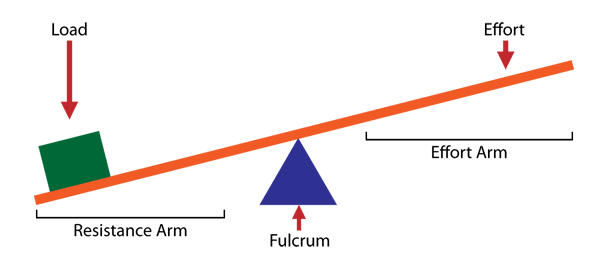
I’ve been working in the realm of productivity and personal development for years. I have been through numerous productivity systems, software, and methods. I’ve Gotten Things Done, I’ve Eaten the Frogs, I’ve amassed way more than 43 Folders. I’ve outlined, mind-mapped, Gantt charted, and Kanban carded myself silly.
And what do I have to show for all that? A new awareness for just how difficult it is to get a handle on all of the things you are doing, need to be doing, and want to get done.
The Lever of Productivity
Being productive is insanely difficult. And what I have found is that no system, software, or morning routine will get you to get a better handle on it. Those things are tools — like a fulcrum in a simple lever. They will help you do more, but you need the proper force to be applied on your side.

When you try to get things done, you’re trying to lift what’s on the load arm. Whatever is there is what you need or want to get done. The software, systems, and organizers you use — they are mere fulcrums. They magnify the effort you put onto the load arm, but if that effort is not enough to move the resistance arm — you simply won’t get things done. You’ll feel bad, and you will lose momentum and fall flat on your face.
Two Ingredients
I believe that I have found the secret sauce of productivity — and it has 2 ingredients: caring and faith.
If you ever hope to make any productivity system work for you, you will have find a way to care about nearly everything in that system. You at least have to care that they get done. But you also have to care enough to want to check in on your list of things, and dedicate the time and effort to think about them.
You see, that is where nearly every iteration of every productivity system I tried has failed — I didn’t spend time and effort just looking at my projects and thinking about them. Why? Because I didn’t care enough. I didn’t feel enthusiastic about the things I was doing (or not doing).
That brings me to the second ingredient: faith. So many times, I didn’t care enough about the projects and tasks in any of my systems to keep giving them time and effort. But the reason for this is that I lacked faith in myself and my systems. I did not have faith that I could make the effort, think through things properly, and then do them effectively. But I should have.
More than anything, it was more a misplaced faith, then the lack of faith. Instead of cultivating faith in myself, I cultivated faith in others — their systems, their software, their theories. But never me — never my ability, never my strength or my intelligence.
For some reason, I expected that once I adopted the right system, read the right book, or bought the right notebook, I would simply begin to get better at getting things done. That, of course, did not happen. That’s where faith comes in.
Faith in this case is more like confidence in yourself and your abilities, no matter what kind of system you have in place. And I call it faith because it doesn’t require evidence. It doesn’t require you to have succeeded in the past, and it does not require that you have any particular reason to expect that you’ll expend the necessary effort to get things done. When you have that faith, mustering up the care is a whole lot easier.
At the end of the day, what moves the needle is what moves you.
Did you find value in this piece? Consider subscribing to my weekly newsletter — Woolgathering. It’s one email per week, with great ideas to add value to your life and work.
